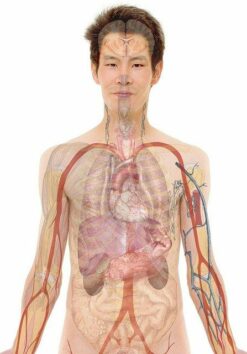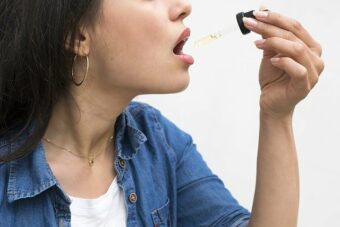Cannabidiol, also known as CBD oil, is a compound extracted from the cannabis plant. Unlike tetrahydrocannabinol (THC), CBD doesn’t contain any psychoactive properties.
CBD oil is the latest rage in health. Clinical studies are being conducted. But what’s the real story behind CBD oil? How does it work? Is it safe? What does the research say? And how can you get your hands on some? We’ve compiled all the top information about CBD oil for you here.
CBD is known to counteract the psychoactive effects of THC. CBD has been used to treat a wide range of medical conditions, from arthritis to epilepsy.
While many people benefit from CBD after using medical marijuana, there are many other medical uses for the oil, including everything from treating sleep apnea to pain disorders and anxiety.

How Does it Work?
Many cultures, as traditional medicine, have consumed CBD. Sufferers of various sleep disorders have reported reducing stress by combining CBD oil with an appellant, most commonly cannabis butter.
Humphrey Osmond, author of “The Complete Cookbook of Homeopathy, ” popularized this conventional technique,” who named CBD “The Superdrug.” The solutions that Osmond recommended in his extensive clinical memory were derived from warm cinnamon water with sugar and a couple of tablespoons of lemon juice.
But developments in CBD research began in earnest in the mid-1960s, when a Swiss scientist, Raphael Mechoulam, discovered the endocannabinoid system. The structure of this system elicits an effect called “opioid modulation” through the activation of specific receptors. In addition to emotional disorders, Mechoulam discovered that CBD could decrease muscle spasms and nausea associated with chemotherapy and radiation.

The Science Behind CBD Oil
Faced with a slew of pharmaceutical options for treating anxiety, researcher Chris Roberts embarked on a CBD-centric clinical trial, with Mechoulam as his inspiration.
In a recent New York Magazine article, Roberts wrote, “By 1969, the US National Institute of Mental Health-funded a dozen clinical trials. They all opposed cannabis as a treatment for anxiety to determine if CBD could ease the tension.
Associated with confronted by virtually anyone who undergoes chemotherapy and radiation treatments.” On the grounds of these trials, a handful of institutions (including Johns Hopkins) started their own CBD research.
The Health Advantages of CBD oil
CBD oil is a phytocannabinoid-rich hemp extract made from the stalks and stems of the cannabis plant. It contains a rich source of phytocannabinoids, terpenes, flavonoids, and other beneficial phytonutrients that interact synergistically to provide many health benefits.
Summary:
CBD oil has shown promise in mitigating functional anxiety and moderating performance anxiety. In a clinical study, college athletes given CBD reported reduced sympathetic nervous system arousal 24 hours after ingestion versus a placebo group.
Moreover, in animal studies, CBD was shown to mitigate anxiety-induced changes in brain activity and performance and reduce anxiolytic symptoms in mice after specific stressors. From this, it’s being hypothesized that CBD may have anxiolytic properties similar to antipsychotic drugs.

HOW DOES IT WORK?
CBD’s active ingredient is CBD-enriched Buddhist butane oil. But other forms of CBD oil also exist. At present, CBD has limited human studies on human beings as it’s still too young to undergo human trials. That being said, there has been preliminary study evidence for CBD’s effectiveness in anxiety in animals.
CBD works by blocking the enzyme GABA A r generation in the brain due to its similarities to the brain’s endocannabinoid system. This mechanism is believed to reduce fear and anxiety, acting as the body’s defense mechanism.

IT’S A HEALTHY RECOVERY FOR ACHIEVEMENT
Although a CBD-enriched oil is too new to have significance, long-term impact studies have been conducted to determine its efficacy. In 2018, the University of South Florida published research showing that a combination of CBD, modafinil, and fluoxetine (the active ingredient in medication like Prozac) helped improve performance for cyclists suffering from anxiety.
Additionally, a recent study published in JAMA found that daily CBD treatments can effectively reduce motor vehicle accidents. — especially in dangerous conditions like high-impact crashes where fear of falling from a high speed harms patient safety.
Is CBD oil safe?
CBD oil is safe when taken by mouth appropriately. It is well-tolerated in doses up to 1500 mg/day for up to 6 weeks.
There have been few reported side effects with CBD, even in high doses, including dry mouth, lightheadedness, mild changes in liver enzymes, and low blood pressure.
What does the research say about CBD and anxiety?
Recent studies show CBD may be an effective treatment option for anxiety disorders. CBD has shown anti-anxiety effects in brain scans, allowing healthy participants to lower their anxiety and note fewer unpleasant sensations in the brain.
For mild to moderate pressure, CBD has demonstrated well-tolerated effects, which would enable everyday users to improve their mood and experience fewer adverse effects.
For panic disorders, several clinical trials have found CBD contributes to the reconsolidation of fear memories. A process that occurs with repeated exposure to cues and stimuli (thought and images) that cause anxiety.
Additionally, CBD targets specific memories and pathways risk markers for anxiety disorders, improving the symptoms associated with stress.
CBD oil is administered when taken by mouth, dosing linearly with half the amount seen in most supplement bottles. One study found this effectively reduced anxiety symptoms and prevented those who have anxiety-related insomnia from waking up in the middle of the night.
But it should be noted, taking CBD oil by mouth is not the same as dosing by the spoonful, as those used in the studies had taken CBD oil in pill form with a teaspoon of oil per day.

Other Health Benefits of CBD Oil
Like nearly all supplements, it’s crucial to participate in a complete, well-powered evaluation to ensure CBD is suitable for you. Regardless of whether you’re looking to treat a medical condition or prevent anxiety.
Many gathered benefits of CBD should be considered anytime a product is indicated — awareness of these may reduce anxiety-related adverse reactions.

How to use CBD Oil
CBD oil is becoming more and more popular as it can treat anxiety and depression without any adverse side effects of prescription medications. But, if you’re new to CBD oil and aren’t sure how to use it, here’s a quick guide:
1. Take a dropper full of CBD oil under your tongue.
2. Sit quietly for a few seconds.
3. Repeat as often as necessary.
4. Try targeting the inhaled end of the dropper like a suction.
Smaller droppers may work best, but keep in mind dropper size can vary, so you may need to experiment with different sizes.
What you don’t want to happen is take too much at one time because your body adapts and starts making more of it.
One tablespoon of CBD oil can typically get you through a complete application, and you don’t have to swallow each dropper.
The time of day that you apply it can also vary (if it’s sunny where you live, apply early in the morning or late in the day to remedy morning sickness). Another factor to consider for CBD oil for anxiety is type.
Some people can tolerate it well, but you might not want to use it if you’re sensitive to it. If you don’t like the taste or are allergic to CBD, you may want to look for a different option.
- You can buy CBD oil in different forms. There are CBD capsules, creams, sprays, and tinctures. The type that you believe will depend on what works for you.
- Look for products with nutrition facts and packaging. There’s lots of confusion around CBD because it can be drugged by taking whole-plant supplements and sometimes drugged through cooking methods.
- Although false accusations have been made against the supplement industry, it makes sense that the medicine would vary depending on what you’re taking.
- CBD claims vary. Because there are so many products on the market, you can expect some health claims that may not hold up to scientific scrutiny.
What’s the Best Kind of CBD Oil
The best kind of CBD oil for anxiety is the one that helps you manage your stress most naturally. Some people prefer to take CBD oil in a capsule or a tablet, while others prefer to inhale CBD oil through a vaporizer.
(A vaporizer specifically designed to deliver inhaled CBD reduces any psychoactive byproducts that could mingle with the medicinal THC.)
Vaping CBD oil based on the CBD content found in its product isn’t sufficient for significant anxiety relief.
THC is the active ingredient in cannabis and hemp, in both its extract and tincture forms. CBD is a compound entirely unrelated to its counterpart.
This means that while CBD and THC have many similar effects described on search engine result pages and anecdotal evidence (aka, the wagging of the dog). They only share approximately 15% of the same active ingredient.

A few critical points to recognize:
CBD is nonpsychoactive and does not cause a high. You’d need a reasonable amount to be affected psychologically. That low amount, 50-100 milligrams, is included with some of the daily supplements purchased by most people.
THC is a known behavioral drug. There is not currently any research about the effects of taking CBD with alcohol or other drugs. There have been some animal studies, but caution should be used when extrapolating these results to humans.
THC administration is highly controversial. In some people, it seems to exacerbate symptoms, while in others, it creates them. There’s not yet enough research to indicate what type of action either comes with.
The most active ingredient in CBD oil is CBD. It’s similar to THC in that regard. There are varying CBD doses, dosing regimens, and how it’s absorbed from the body. In its pure form, it’s no more potent a brain stimulant than THC.
Because of how close the two are and how well it works together, the most common claim you’ll hear about CBD is that it helps reduce anxiety.
Conclusion
You may have heard about how cannabis can help improve your health, but there’s still a lot of confusion out there.
Cheers,
Kevin


